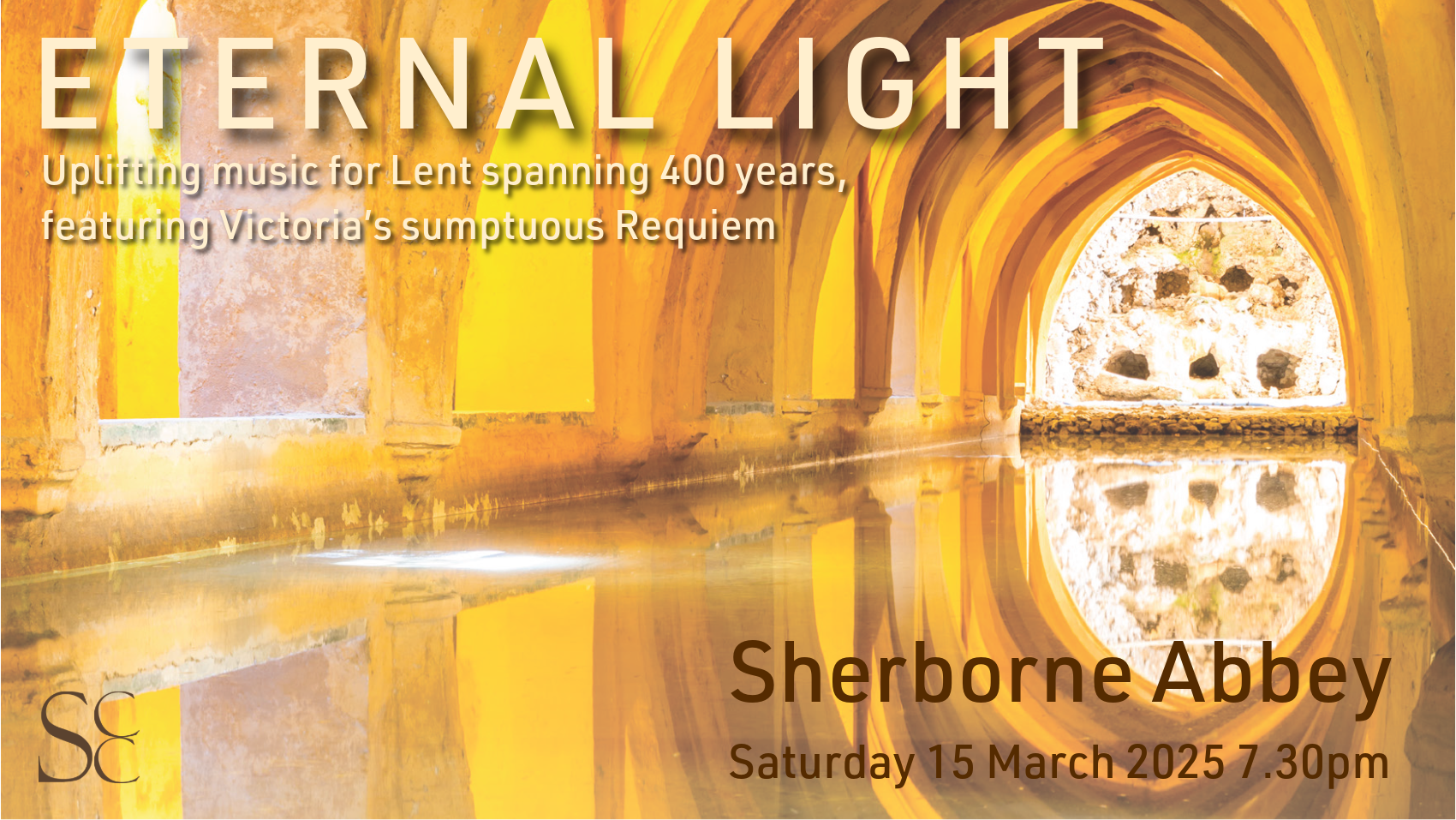Join us on 15 March in Sherborne Abbey for an evening of atmospheric and uplifting music for Lent, spanning over 400 years, and including music from Spain, Italy, Germany, and, of course, the UK. Our March concert is entirely made up of unaccompanied choral music, much of it for multiple voice parts, ideally suited to the Abbey’s fine acoustic.

Tomás Luis de Victoria’s 1605 setting of the Requiem was his final work, a summation of his art, but also the Spanish Renaissance tradition. It was written for the burial service of his mentor, the Dowager Empress Maria, to whom he was chaplain for many years, as well as Director of Music at the convent in which she resided. The traditional plainsong on which it is structured appears unadorned throughout, weaving between Victoria’s masterful polyphony, which is refined and serene, yet full of Spanish passion and fervour, a masterpiece as much now as then.
John Tavener needs little introduction, particularly in this area, where he lived for many years. His 1981 Funeral Ikos is a fine example of the influence of the Orthodox Church liturgical traditions which permeated much of Tavener’s music.
Lotti and Pizzetti represent two ends of Italian choral composition, several hundred years apart. Ildebrando Pizzetti was a twentieth century teacher and composer, with an extensive and varied output. De profundis is a lovely choral work with a surprising history! Like Stanford, he could be difficult to get on with, and this was written when a shattered friendship with another composer, Malipiero, was patched up, both men agreeing to set the words of Psalm 130 and dedicate their respective pieces to each other. Venetian composer Antonio Lotti was a contemporary of Bach, though his music sounds as if it was written much earlier. He wrote many different settings of the ‘Crucifixus’, but the dramatic setting in eight parts is by far the best known and a favourite of many choirs.
Almost as Lotti was composing in Venice, Henry Purcell was composing in London as organist at Westminster Abbey and court composer to William and Mary. His lovely Hear my prayer is another favourite of choirs at this time of year; it’s also in eight parts and, like the Lotti, from a quite beginning builds up intensity through the parts to a dramatic climax, before dying away again.
We’re taking just a brief visit to early twentieth century Germany for one of Max Reger’s eight Sacred Songs. He is best known for his organ music, which is often densely textured; this song, written just before he died, is in multiple parts, yet maintains a lightness of sound.

Regular members of our audience will know that Herbert Howells’ choral works feature regularly in our programmes, but it is many years since we’ve performed Take him, earth, for cherishing, the final work in our spring programme. One of his loveliest and finest shorter choral works, it was commissioned for the commemoration service following the death of President Kennedy, held in Washington in 1964, setting Helen Waddell’s English translation of a fourth century poem. Fittingly, it was also sung at the composer’s own memorial service in 1983.

